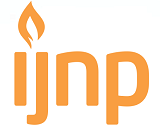Effect of Family-Based Education on Improving Family Health Tasks in Preventing the Transmission of Covid-19
DOI:
https://doi.org/10.18196/ijnp.v7i1.17130Keywords:
covid-19, education, family-based, family health tasks, preventionAbstract
Background: During the 2020 pandemic, West Java established 4 red zones (where the transmission of Covid-19 was considered high), one of the cities was Cimahi. Based on the data, the accumulation cases was dominated by family clusters, so the government established policies to protect family members from Covid-19 transmission, namely modifying behaviours relating to carrying out activities by implementing health protocols. Consistency in implementing health protocols is way to prevent the transmission of Covid-19. Family-based education also has an important role to socialize and teach family members about health protocols that must be adhered to during the Covid-19 pandemic. The existence of Family-based has been found to improve the implementation of health tasks in the family.
Objective: This study aims to determine the effect of family-based education on improving family health tasks in preventing the transmission of Covid-19.
Methods: The research design used a quasi-experimental pre- and post-test control group design. The research respondents were 31 families for the intervention group and 31 families for the control group. The sampling technique was proportional random sampling. The educational intervention as provided in 3 meetings. Data analysis used Wilcoxon and Mann-Whitney.
Results: The results showed that there family-based education had an effect on increasing family health tasks relation to the prevention of the transmission of Covid-19 because the p-value was 0.000.
Conclusions: Therefore, it was recommended that the head of the Public Health and Disease Control program implement family-based education in order to prevent the transmission of Covid 19 within the family and community.
References
Achjar, K. A. H. (2010). Aplikasi asuhan keperawatan keluarga. Jakarta: CV Sagung Seto.
Azanella, L. A. (2020). Pencegahan Covid-19 Untuk Sambut New Normal. https://www.kompas.com/tren/read/2020/05/18/103200465/simak-panduan-protokol-kesehatan-pencegahan-covid-19-untuk-sambut-new?page=all. Retrieved September 17, 2020.
Akbar, M. A., Juniarti, N., & Yamin, A. (2022). The Roles of Community Health Nurses' in Covid-19 Management in Indonesia: A Qualitative Study. International journal of community based nursing and midwifery, 10(2), 96–109. https://doi.org/10.30476/IJCBNM.2021.90884.1739
Bandura, A., (2004). Self Efficacy. In V. S. Ramachaudran (Ed.), Encyclopedia of Human Behavior. Volume 4. pp 71-81. New York: Academic Press.
Dahlan, MS. (2016). Besar Sampel dalam Penelitian Kedokteran dan Kesehatan. Jakarta : Salemba Medika
Friedman, M., Bowden, V., Jones, E. (2010). Keperawatan Keluarga: Riset, Teori & Praktek. Ed 5.Jakarta: EGC.
Glanz, K, et al. (2004). Health Behavior And Health Education. Edisi III. Jossey- Bass A Wiley Imprint : 150-155
Green, L.W. and M.W. Kreuter. (2005). Health Program Planing: An Educational and Ecological Approach. Fourth Edition. McGraw-Hill. New York.
Herawati. (2020). Peranan Keluarga Menjadi Kunci Utama di Era Pandemi Covid-19 dan New Normal. Bogor
Khatiban, M., Kheirollahi, A., Oshvandi, K., Alhani, F., & Feradmal, J. (2014). The effect of family-based education on knowledge and self-esteem of caregivers of patients with stroke: a randomized controlled trial. Journal of Mazandaran University of Medical Sciences; 23 (110) :244-250.
Leung, C. M., Ho, G. K., Foong, M., Ho, C. F., Lee, P. K., & Mak, L. S. (2005). Small‐group hypertension health education programme: a process and outcome evaluation. Journal of Advanced Nursing, 52(6), 631-639. https://doi.org/10.1111/j.1365-2648.2005.03640.x
Meilianingsih, L., & Setiawan, R. (2017). Pelayanan Home Care Terhadap Tingkat Kemandirian Keluarga Dalam Merawat Anggota Keluarga Dengan Diabetes Melitus Tipe 2. Jurnal Persatuan Perawat Nasional Indonesia (JPPNI), 1(1), 9-19. https://doi.org/10.32419/jppni.v1i1.10
Naim, R., Juniarti, N., & Yamin, A. (2017). Pengaruh Edukasi Berbasis Keluarga terhadap Intensi Ibu Hamil untuk Optimalisasi Nutrisi pada 1000 Hari Pertama Kehidupan. Jurnal Keperawatan Padjadjaran, 5(2). https://doi.org/10.24198/jkp.v5i2.475
Notoatmodjo, S. (2010). Promosi kesehatan teori dan aplikasinya edisi revisi, Jakarta: Rineka Cipta.
Perdana. (2020). Kasus Covid-19 di Kota Cimahi Terus Bertambah Didominasi Klaster Keluarga. Available at http://detik news.wordpress.com. Retrieved September 17, 2020.
Ministry of Health. (2020). Data Kasus Covid-19 Kota Cimahi. Cimahi
Riasmini, N. M., Permatasari, H., Chairani, R., Astuti, N. P., Ria, R. T. T. M., & Handayani, T. W. (2017). Panduan Asuhan Keperawatan Individu, Keluarga, Kelompok, Dan Komunitas Dengan Modifikasi NANDA, ICNP, NOC Dan NIC Di Puskesmas Dan Masyarakat. IPKKI: Jakarta. Halaman, 33-52.
Rumiati, R., Kariasa, I. M., & Waluyo, A. (2021). The Effectiveness of Post-Stroke Patient Care Education Intervention in Stroke Caregivers: A Literature Review. IJNP (Indonesian Journal of Nursing Practices), 5(2). https://doi.org/10.18196/ijnp.v5i2.11437
Sari, C. W. M., Haroen, H., & Nursiswati, N. (2016). Pengaruh Program Edukasi Perawatan Kaki Berbasis Keluarga terhadap Perilaku Perawatan Kaki pada Pasien Diabetes Melitus Tipe 2. Jurnal Keperawatan Padjadjaran, 4(3). https://doi.org/10.24198/jkp.v4i3.293
Satrio, AD. (2020). Edukasi Berbasis Keluarga Tularkan Kebiasaan Baru Cegah Covid-19. https://nasional.okezone.com/read/2020/06. Retrieved September 17, 2020
Setiawan, R. (2016). Teori dan Praktek Keperawatan Keluarga. Semarang. Uness Press.
Srisuk, N., Cameron, J., Ski, C. F., & Thompson, D. R. (2015). A family-based education program for heart failure patients and carers in rural Thailand: a randomised controlled trial. Heart, Lung and Circulation, 24, S418. https://doi.org/10.1016/j.hlc.2015.06.709
WHO. (2020). Coronavirus Disease (COVID-19) Situation Report. http//www.who.int/docs/default.source/coronaviruse/situation.reports/2 0200520. Retrieved September 14, 2020.
Downloads
Additional Files
Published
Issue
Section
License
License
Articles published in the IJNP (Indonesian Journal of Nursing Practices) are licensed under a Attribution 4.0 International (CC BY 4.0) license. You are free to:
- Share — copy and redistribute the material in any medium or format.
- Adapt — remix, transform, and build upon the material for any purpose, even commercially.
This license is acceptable for Free Cultural Works. The licensor cannot revoke these freedoms as long as you follow the license terms. Under the following terms:
Attribution — You must give appropriate credit, provide a link to the license, and indicate if changes were made. You may do so in any reasonable manner, but not in any way that suggests the licensor endorses you or your use.
- No additional restrictions — You may not apply legal terms or technological measures that legally restrict others from doing anything the license permits.
Copyright
Authors who publish with IJNP (Indonesian Journal of Nursing Practices) agree to the following terms:
- Authors retain copyright and grant IJNP (Indonesian Journal of Nursing Practices) the right of first publication with the work simultaneously licensed under an Attribution 4.0 International (CC BY 4.0) that allows others to remix, adapt and build upon the work with an acknowledgment of the work's authorship and of the initial publication in IJNP (Indonesian Journal of Nursing Practices).
- Authors are permitted to copy and redistribute the journal's published version of the work (e.g., post it to an institutional repository or publish it in a book), with an acknowledgment of its initial publication in IJNP (Indonesian Journal of Nursing Practices).














